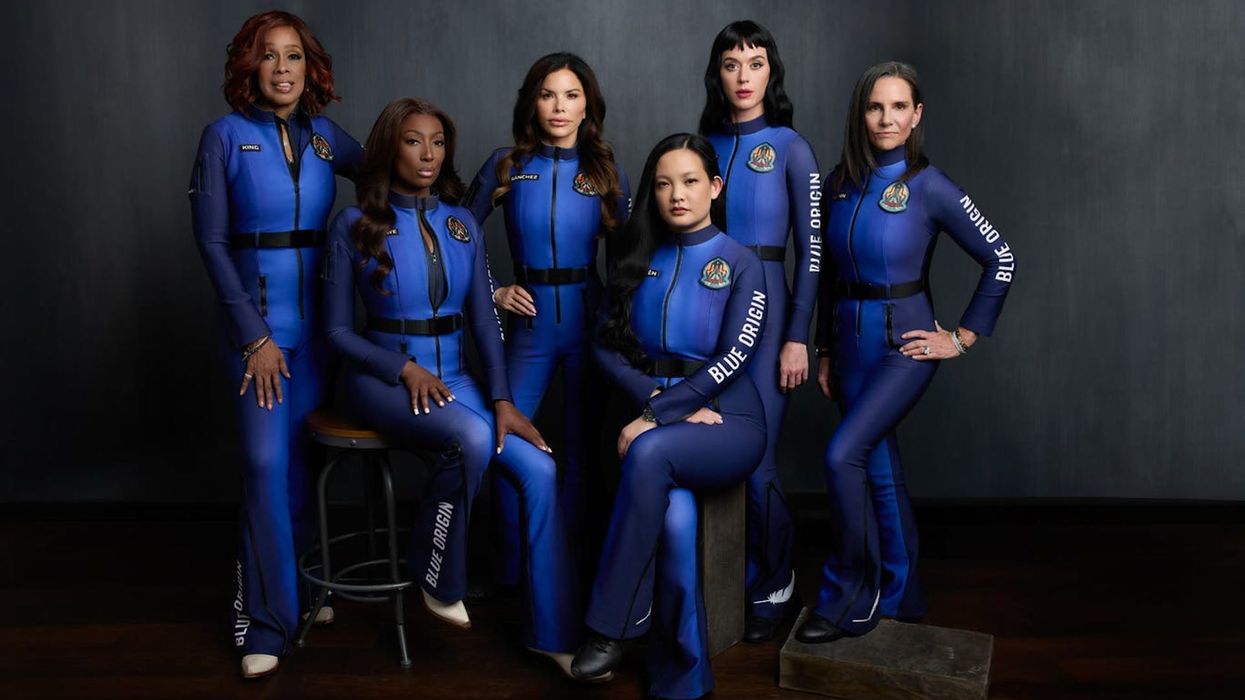Katy Perry is among the six women blasting off into space on Monday (14 April) for an extraordinary trip.
The 'E.T.' singer will travel on Jeff Bezos’ space tourism rocket called the New Shepard, which was built by his space company Blue Origin.
"If you had told me that I would be part of the first-ever all-female crew in space, I would have believed you. Nothing was beyond my imagination as a child. Although we didn't grow up with much, I never stopped looking at the world with hopeful WONDER!" Perry said in a social media post, referencing the song ‘Wonder’ from her recent album, 143.
The former American Idol judge has been keeping her fans up-to-date as she gets ready to leave Earth for the first time. Perry gave a quick tour of the capsule and revealed she’ll be sitting in seat number two.
“I gotta sing in space,” she teased. “We are the ‘Taking Up Space’ crew,” she proudly declared, giving a shout out to her fellow crew members.
When will the Blue Origin New Shepard NS-31 begin?
The spacecraft will lift off from its launch site in West Texas. The launch window opens at 08:30 local time (14:30 BST). The flight will last around 11 minutes and the crew will be lifted more than 100km (62 miles) above Earth, crossing the internationally recognised boundary of space.
Who else is part of the Blue Origin New Shepard NS-31 crew?
Perry will be joined by former NASA rocket scientist Aisha Bowe, civil rights activist Amanda Nguyen, film producer Kerianne Flynn, TV presenter Gayle King, and Bezos’ fiancée Lauren Sánchez.
Blue Origin says the last time an all-female spaceflight took place was over 60 years ago, when Soviet Cosmonaut Valentina Tereshkova became the first woman to travel into space on a solo mission in 1963 aboard the spacecraft Vostok 6.
How will the Blue Origin New Shepard NS-31 crew return to Earth?
The New Shepard spacecraft is fully autonomous and requires no pilots, which means the crew will not have to manually operate the vehicle.
The capsule will make a soft landing back on Earth using parachutes, while the rocket booster will touch down autonomously about two miles from the launch site. The mission will last 11 minutes.
Good luck to the crew!
You should also read:
- NASA astronaut captures surprise aurora from space - and it's truly magical
- Human space travel to Mars gets one step closer after key test
Sign up for our free Indy100 weekly newsletter
How to join the indy100's free WhatsApp channel
Have your say in our news democracy. Click the upvote icon at the top of the page to help raise this article through the indy100 rankings














